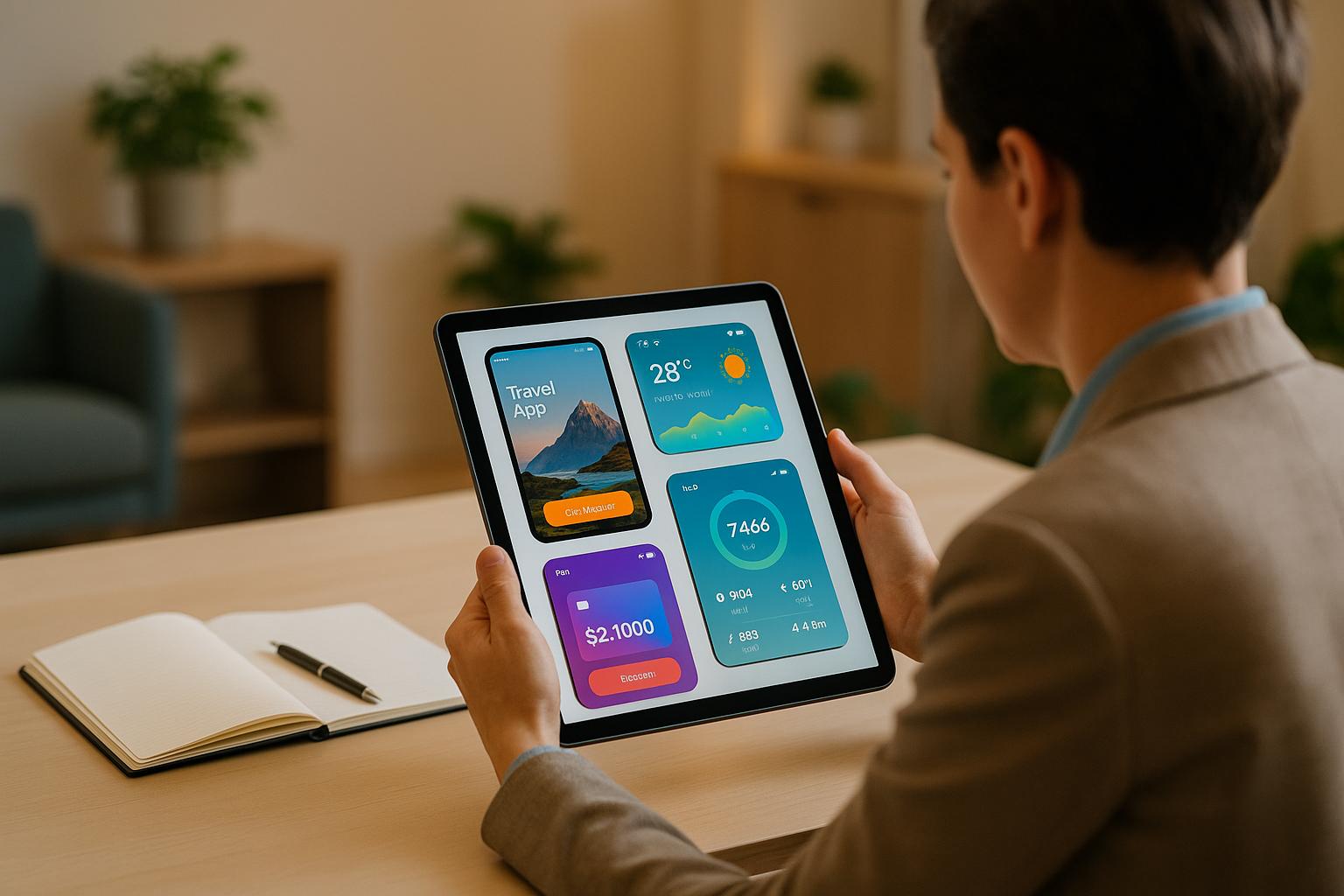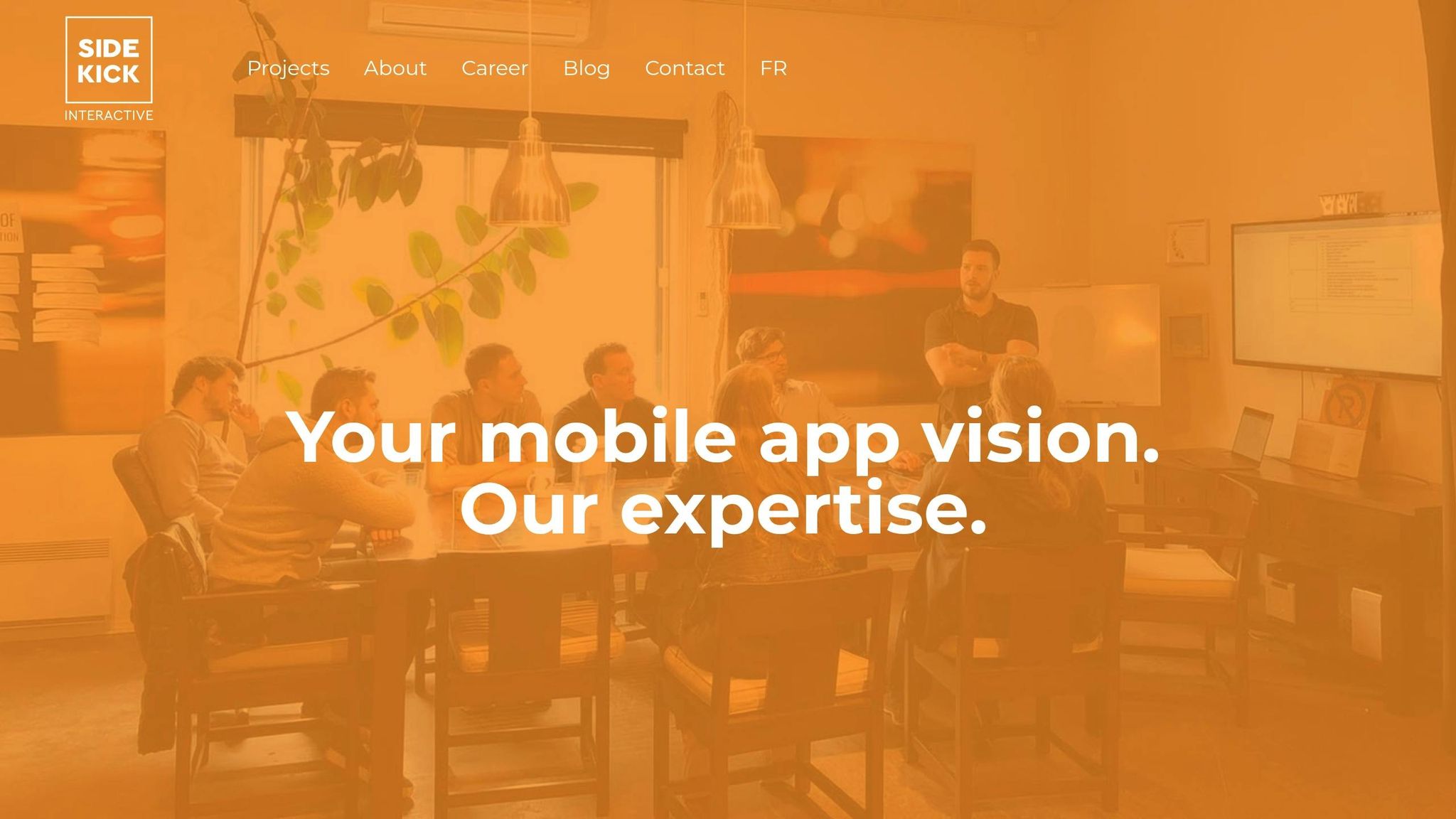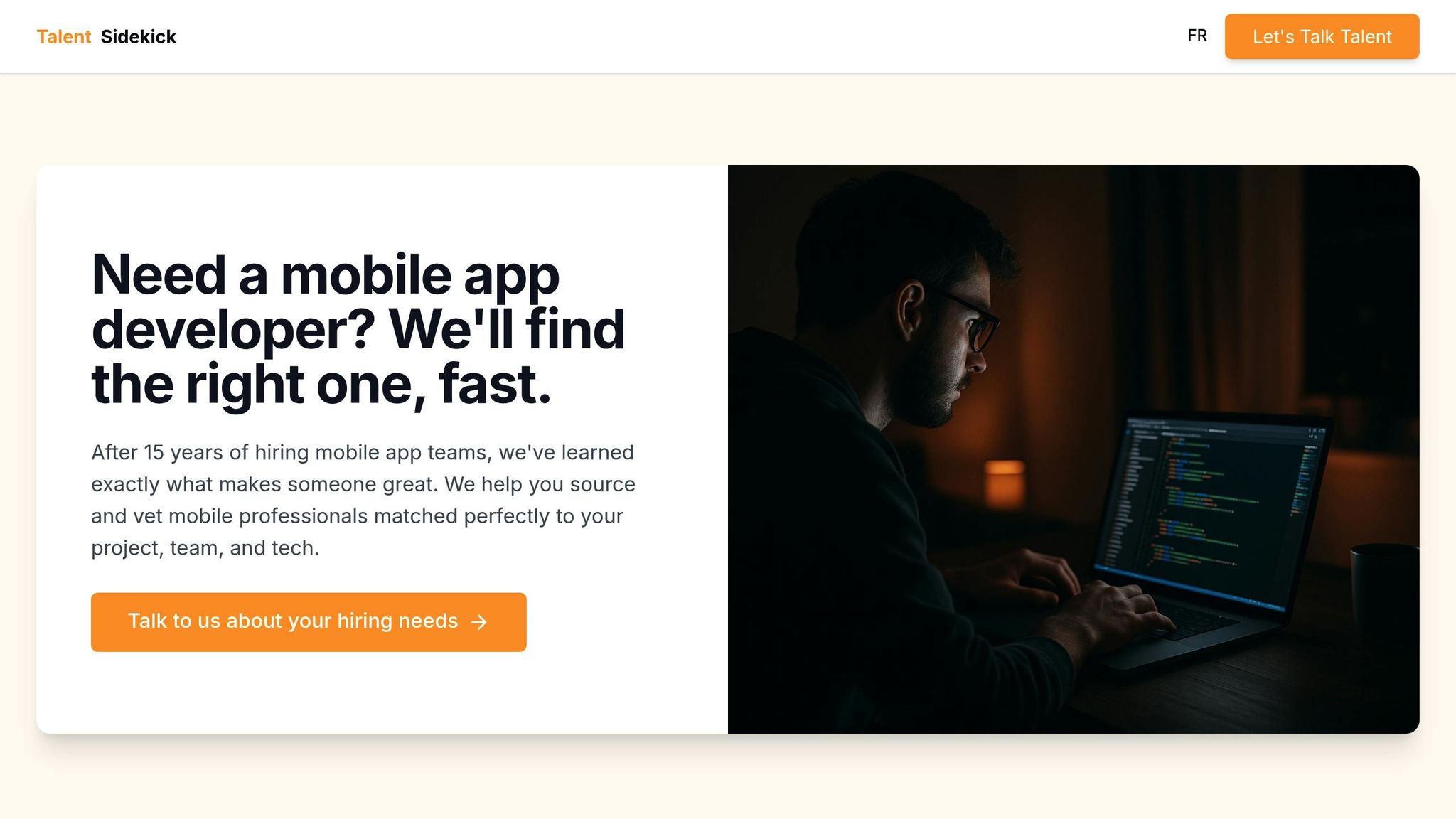
If you’re not technical, evaluating a mobile app developer can feel overwhelming, but it doesn’t have to be. Focus on these key steps:
- Define Your Goals Clearly: Identify your app’s purpose, target audience, and essential features. Start with a Minimum Viable Product (MVP) to prioritize core functionalities.
- Review Their Portfolio: Look for similar projects, user-friendly designs, and relevant experience with features or industries like yours.
- Assess Communication Skills: Choose a developer who explains technical concepts in plain terms and understands your business goals.
- Check References and Reviews: Read client feedback, verify success stories, and confirm they offer post-launch support.
- Test with a Small Project: A paid trial task can reveal their reliability, problem-solving, and work quality.
How to Hire App Developer as a Non-Technical Founder – 2025
Define Your Project Requirements First
Before reaching out to developers, take the time to clearly outline your app’s requirements. Start by answering three key questions: What problem does your app solve? Who will use it? What do they need to accomplish? These answers will shape every decision you make throughout the development process.
Once you’ve nailed down the overall vision, map out the specific features your app needs to include.
List Your App’s Main Goals and Features
Your app’s purpose should be straightforward and easy to articulate. Are you creating a tool to enhance customer loyalty, streamline internal workflows, or offer users a fresh service channel? Try summing up your primary goal in one sentence. A focused goal ensures the development stays on track.
From there, separate the essential features from the extras. Focus on what users absolutely need to achieve their main objective. For example, in a food delivery app, key features could include menu browsing, ordering, payment processing, and order tracking. Secondary features, like recipe suggestions or social sharing, can be added later.
Organize your features into a roadmap. Start with a Minimum Viable Product (MVP) – a version that includes only the essential features needed to provide immediate value. This approach lets you launch sooner and gather real-world feedback before committing to additional, resource-intensive features.
Think about your users’ daily habits and challenges. For instance, a fitness studio app might require class scheduling, membership management, and workout tracking. Focus on high-value features that are relatively simple to implement, and save more complex additions for future updates.
Consider Your Industry’s Special Requirements
Every industry has its own unique challenges, and your app will need to address them. For example, healthcare apps must comply with regulations like HIPAA, while financial apps require robust data security measures to protect sensitive information.
These compliance requirements vary depending on the sector. A finance app may need to meet GDPR standards, while educational apps handling student data must follow specific privacy rules. Identifying these needs early on will help you avoid costly redesigns later and ensure your developer has the necessary expertise for your industry.
If your app needs to integrate with existing systems – like CRM tools, payment processors, or other platforms – plan for these connections upfront. For instance, a manufacturing app might benefit from integrations with IoT sensors or production equipment to streamline operations.
Emerging technologies also present opportunities to stand out. For example, the IoT market for home applications is projected to generate $200 billion to $350 billion annually by 2025. A real estate app could include virtual property tours using augmented reality, while a manufacturing app might use AI to predict equipment maintenance needs.
Research your competitors’ apps to understand what features are standard in your industry and where there might be gaps. What do users expect? Where do existing solutions fall short? This analysis will help you refine your app’s requirements based on actual market needs.
Engage with your target audience early on. Conduct interviews with potential users, industry professionals, and internal stakeholders to uncover critical needs – like offline functionality for field workers or multi-language support – that you might not have considered.
Finally, document these industry-specific requirements thoroughly. When you present your ideas to developers, explain not only what features you need but also why they’re important. This context will help developers suggest the best technical solutions and anticipate challenges before they arise.
With your requirements clearly defined and tailored to your industry, you’ll be better equipped to evaluate developers and move forward with confidence.
Review Developer Portfolios and Past Work
Once you’ve nailed down your project requirements, the next step is to dig into potential developers’ portfolios. A portfolio can provide a deeper understanding of their capabilities, often speaking louder than any sales pitch. By examining their previous work, you can gauge whether a developer has the expertise needed to handle your app’s challenges and meet your quality expectations.
Look for Similar Projects in Their Portfolio
Start by analyzing the visuals in their portfolio. These visuals can give you a sense of the developer’s approach to design, layout, and overall user experience. Pay special attention to apps that tackle problems similar to yours or cater to a similar audience.
Dive into the project descriptions to get a clearer picture of the challenges they addressed and the solutions they implemented. For instance, if a developer has worked on a retail app with inventory management features, they might be a strong candidate for your e-commerce project.
Check if the portfolio lists the technologies and tools used for each project. If your app requires specific features, like integration with payment processors or offline functionality, make sure the developer has hands-on experience with those technologies.
Don’t forget to look at collaborative projects or open-source contributions. These can highlight a developer’s ability to work well in a team setting. Additionally, user feedback and app ratings from their past work can offer valuable insights into the quality and user satisfaction of their projects.
Check Experience with Advanced Features and Security
Case studies in a portfolio are particularly insightful. They provide a step-by-step breakdown of the problem-solving process, challenges faced, and the solutions implemented. A developer who can explain how they tackled complex issues – like integrating multiple systems or improving app performance – is likely to handle unexpected challenges during your project.
If your app requires advanced features, make sure the developer has relevant experience. For example, if real-time messaging is a must, look for examples of apps with chat functionality. Similarly, check for expertise in areas like encryption, secure authentication, and compliance with regulations for handling sensitive data.
Look for mentions of technologies like SSL certificates or secure API implementations. These details can help you assess whether their skills align with your security needs. Summarizing these insights in a simple comparison chart can make it easier to evaluate multiple developers.
Use a Simple Comparison Chart for Developer Skills
A comparison chart can simplify the evaluation process by aligning portfolio insights with your project’s technical needs. Focus on the skills that matter most while avoiding unnecessary technical jargon.
| Evaluation Criteria | Developer A | Developer B | Developer C |
|---|---|---|---|
| Similar Project Experience | 3 retail apps with payment integration | 2 healthcare apps with HIPAA compliance | 5 social apps with real-time features |
| Security Implementation | Basic SSL, standard authentication | Advanced encryption, compliance experience | Moderate security, OAuth integration |
| Portfolio Quality | High-quality screenshots, detailed case studies | Professional presentation, user testimonials | Good visuals, limited project details |
| Technology Match | 80% match with your requirements | 95% match with your requirements | 60% match with your requirements |
According to surveys, 78% of developers believe that client references are a critical factor when evaluating a developer. Additionally, 85% of companies consider past work experience to be a key hiring factor for mobile developers. A strong portfolio with a proven track record is often one of the best indicators of a developer’s ability to deliver results.
A well-organized and visually appealing portfolio can also reflect the developer’s professionalism and attention to detail. The best portfolios often include links to app stores or demo versions, giving you the chance to experience the final product firsthand.
Test Communication and Teamwork Skills
When it comes to building an app, technical expertise alone won’t cut it. Clear communication and strong teamwork are just as critical to bringing your project to life. Here’s how to evaluate these essential skills.
Check How Well They Explain Technical Concepts
A great developer isn’t just skilled with code – they should also be able to explain complex technical ideas in plain, understandable terms. During your initial conversations, pay close attention to how they handle your questions about their development process or technical decisions.
For instance, ask them to break down a technical concept, like user authentication, as if they were explaining it to someone without a tech background. This can give you a sense of how well they communicate and simplify intricate topics. You can also ask for a short written explanation of their approach to a key feature. This is especially important for ongoing updates and future maintenance, where clear written communication will save you time and headaches.
Notice how they engage in discussions. Do they pause to listen and ask clarifying questions before diving into technical details? Or do they jump straight into explanations without fully understanding your needs? Developers who take the time to understand your perspective and business context are more likely to deliver solutions that align with your vision.
See If They Understand Your Business Goals
A developer’s ability to grasp your business goals is just as important as their technical skills. Pay attention to the questions they ask during your initial meetings. Are they curious about your target audience, competitors, and the specific problems your app is designed to solve?
Look for developers who take a big-picture approach. They should be asking about your business objectives, market landscape, and user needs. This shows that they’re not just focused on coding but also on how the app fits into your overall strategy.
Also, notice if they suggest features or improvements that align with your goals. Do they bring up practical considerations like budget, timelines, or preferred communication methods? These discussions indicate they’re thinking about the full project lifecycle – not just the development phase – and can help you set realistic expectations.
Start with a Small Test Project
Once you’ve assessed their communication and business insight, it’s time to put their skills to the test. A short, paid trial project is a great way to evaluate their problem-solving abilities, reliability, and overall fit for your team.
Choose a small, manageable task, like creating a prototype, designing a few screens, or building a basic feature. Be clear about what you expect in terms of deliverables, deadlines, and communication frequency.
During the trial, observe how they handle feedback, respond to challenges, and communicate progress. Do they ask thoughtful questions when requirements are unclear? Are they proactive in providing updates? Strong developers will address obstacles early, suggest solutions, and be upfront about any delays or issues that might affect the timeline.
The trial project also gives you a glimpse into their work quality. While it won’t reveal their full capabilities, it should showcase clean code, proper documentation, and attention to detail. This step can help you decide if they’re the right fit for your larger project.
sbb-itb-7af2948
Check Developer Credibility Through Reviews and References
To truly understand a developer’s capabilities, it’s essential to dig into their track record. Client feedback and third-party reviews can reveal much about their reliability, work quality, and ability to meet expectations. Look deeper into client experiences to assess their consistency and professionalism.
Read Client Reviews and Success Stories
Client reviews offer a window into a developer’s actual performance. When going through testimonials, focus on specifics rather than generic praise. For example, look for mentions of how they tackled challenges, kept communication clear, and adhered to deadlines and budgets.
Pay attention to recurring patterns. If multiple reviews highlight their problem-solving skills or responsiveness, it’s a strong indicator of reliability. Similarly, consistent praise for customer service or teamwork can boost your confidence in their ability to collaborate effectively.
Negative reviews are equally important. While a few isolated complaints might not be a dealbreaker, repeated issues like missed deadlines or poor communication should raise red flags. For a more complete picture, consider reaching out to past clients directly to hear about their experiences firsthand.
Use Review Platforms to Verify Ratings
Third-party review platforms provide an unbiased perspective on a developer’s reputation. Platforms like Clutch are widely trusted for detailed client feedback and verified reviews. GoodFirms and Upwork are also reliable resources for finding reputable development companies.
When exploring ratings, focus on detailed reviews. A developer with a 4.8-star rating backed by specific feedback is often more trustworthy than one with a perfect 5.0 rating based on vague testimonials. Authentic reviews usually include detailed project descriptions, the reviewer’s name, and insights into the work process. Be cautious of reviews that lack specifics or seem overly generic.
It’s worth noting that 81% of employers consider reference checks critical to making informed decisions, and 62% have caught resume inaccuracies through this process. This underscores the importance of verifying both reviews and references to ensure you’re making the right choice.
Confirm They Provide Long-Term Support
Beyond initial feedback, it’s essential to confirm that the developer offers long-term support. App development doesn’t end at launch – updates, maintenance, and ongoing support are crucial for success. During your evaluation, ask developers about their post-launch policies. Do they provide clear agreements outlining response times, update schedules, and maintenance costs? Clarify whether support is included or billed separately.
Check reviews for mentions of long-term support. Comments about responsive bug fixes, timely updates, or consistent communication post-launch indicate a commitment to ongoing maintenance.
Finally, recognition from organizations like the Apple App Store or Google Play Store can signal adherence to high-quality standards. Such endorsements are another layer of credibility to consider when evaluating developers.
Partner with Sidekick Interactive for Expert Mobile App Development
When it’s time to choose a mobile app development partner, Sidekick Interactive stands out. With 14 years of experience, they’re known for delivering secure, high-quality apps that align with strict industry standards.
Get Custom Apps Built for Your Industry
Sidekick Interactive knows that every industry has its own set of challenges, particularly around security and compliance. They specialize in creating apps that adhere to rigorous standards like HIPAA for healthcare or PCI DSS for finance. Their approach includes advanced security measures and regular audits to ensure sensitive data remains protected.
Their portfolio highlights their expertise. For example, they’ve developed a HIPAA-compliant telemedicine platform featuring encrypted storage and secure authentication. They’ve also built mobile banking apps with advanced transaction monitoring. Beyond this, they enhance AI-based or low-code solutions by incorporating user-friendly interfaces and cutting-edge features like 3D scanning and augmented reality (AR).
They’re also a go-to partner for founders looking to elevate their AI apps or low-code projects. Sidekick Interactive focuses on securing existing solutions and designing intuitive interfaces that low-code platforms often can’t achieve. Their technical skills extend to integrating technologies like Apple Vision Pro and AR, making them a great fit for complex, specialized projects.
Once you’ve identified your needs, Talent Sidekick simplifies the hiring process by connecting you with top-tier developers.
Access Pre-Screened Developers with Talent Sidekick
Talent Sidekick is designed to help non-technical leaders find the right mobile developers. Their team rigorously vets candidates through a multi-step process that includes technical tests, portfolio reviews, reference checks, and interviews designed to assess problem-solving and communication skills. Only developers who excel in both technical expertise and client collaboration make the cut.
This approach ensures that non-technical clients avoid common pitfalls. Whether you’re looking for iOS, Android, Flutter, or React Native developers, Talent Sidekick provides flexible hiring options. You can choose from short-term contracts, long-term collaborations, or even hire-to-perm arrangements. Every candidate is ready to hit the ground running, with the skills and experience needed to build and maintain mobile products effectively.
Build Long-Term Partnerships for App Success
Success doesn’t stop at launch. Sidekick Interactive emphasizes long-term collaboration to keep your app performing at its best. They provide tailored post-launch support, including updates, bug fixes, performance monitoring, and feature enhancements. This ensures your app stays secure and continues to meet your business goals.
Their commitment to ongoing relationships is clear. They offer regular check-ins to evaluate app performance, identify new opportunities, and ensure your app evolves alongside your business. This approach has delivered impressive results: one healthcare client reported a 40% boost in patient engagement, while a retail client cut order processing times by 30% through a custom mobile solution.
For non-technical clients, Sidekick Interactive focuses on clear, jargon-free communication. They use visual project management tools to keep you informed at every stage and provide educational resources to help you understand key decisions. By encouraging feedback and maintaining transparency, they build the trust needed for successful, long-term partnerships.
Additionally, they tailor app interfaces to meet U.S. standards, incorporating $ formatting, MM/DD/YYYY dates, and compliance with U.S. data privacy laws. This attention to detail ensures your app is ready for your audience from day one.
Conclusion: Making Confident Decisions as a Non-Technical Leader
Evaluating mobile app developers when you lack technical expertise doesn’t have to be overwhelming. Start by clearly defining your project goals and requirements in a single, well-organized document. This clarity will guide your conversations with potential developers and set the foundation for selecting the right partner.
Pay close attention to a developer’s portfolio and how they communicate. Look for someone who can break down complex concepts in a way that makes sense to you and who shows genuine interest in your business goals. Avoid developers who rely on jargon or fail to ask thoughtful questions about your project.
Once you’ve narrowed down your options, take the next step by testing the developer with a small pilot project. This hands-on approach gives you a clear picture of their work style, communication skills, and reliability in delivering results. Pair this with thorough reference checks and verifying reviews to minimize risks and steer clear of common hiring mistakes.
For non-technical leaders, partnering with Sidekick Interactive can make the process even smoother. With over 14 years of experience working with business leaders, they’ve mastered the art of clear communication and delivering pre-vetted developers who excel in both technical skills and client collaboration. By choosing Sidekick Interactive, you gain access to a streamlined hiring process that eliminates much of the uncertainty and ensures your project is in capable hands. Their client-centered approach simplifies what can often feel like a daunting task.
FAQs
How can I clearly explain my app idea and needs to a developer without a technical background?
To share your app idea effectively, even if you lack technical know-how, focus on keeping things clear and straightforward. Begin by explaining the purpose of your app, the problem it aims to solve, and the main features you have in mind. Stick to plain, easy-to-understand language, and consider including examples, sketches, or basic diagrams to bring your vision to life.
Instead of diving into the technical details, concentrate on what you want the app to accomplish – like the goals for users or the results you hope to achieve. Keep the conversation open by asking questions and encouraging the developer to clarify any uncertainties. It’s also a good idea to create written summaries of your discussions to ensure everyone is on the same page regarding expectations and goals.
How can I identify a trustworthy mobile app developer by reviewing their portfolio and client feedback?
When evaluating a developer’s portfolio, focus on apps with impressive download numbers, active user engagement, and a range of project types. These elements highlight their capability to tackle different challenges and achieve measurable outcomes.
Equally, client feedback carries significant weight. Look for reviews that highlight on-time delivery, effective communication, and top-notch work quality. Consistent recognition for professionalism and problem-solving abilities speaks volumes about their dependability and skill.
Why should I start with a small test project before hiring a mobile app developer?
Starting with a small test project is a practical way to gauge a mobile app developer‘s capabilities before diving into a larger commitment. This approach helps you evaluate their technical skills, communication habits, and ability to stick to deadlines – all without taking on too much risk.
A test project can highlight potential issues early, confirm that the developer grasps your vision, and ensure their work aligns with your goals. It’s a smart way to avoid wasted time, money, and frustration by addressing any concerns upfront. Plus, it helps you feel more confident about moving forward with the full app development process.



